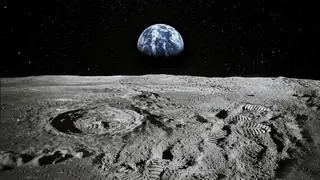ISRO’s moon mission Chandrayaan-2, may be described as a ‘failure’ inasmuch as the lander Vikram did not gently leg-down on the lunar surface as desired, but the agency’s Chairman, Kailasavadivoo Sivan, says the mission has yielded rich learnings.
“We have learnt many technologies,” Sivan told Business Line on Monday.
“The orbiter is working nicely,” he observed. Operations such as orbiter injection, earth-bound manoeuvres, trans-lunar injection, lunar orbit injection and orbit reduction have been done by ISRO earlier, but ISRO got to do these once again.
However, the newly-developed throttleable engines, sensors and algorithms that were developed for the lander were fresh learnings. “These functioned well quite up to a long time,” Sivan said, adding that the failure was only towards the very end of the landing.
Asked when there might be a Chandrayaan-3, Sivan said that that had yet to be decided.
On the upcoming launch vehicles, he said that ISRO’s semi-cryogenic engine “is getting ready” and the first of the tests on the engine would be done in Ukraine. The semi-cryogenic engine, which will have the fuel kerosene at room temperature and the oxidiser liquid oxygen at cryogenic temperatures, will enable ISRO to lift up to 6 tonnes of mass to GeoSynchronous Orbit, 36,000 km above earth.
Is ISRO looking beyond chemical propulsion? Sivan said that the agency had successfully tried out electric propulsion on one of its satellites and was working on a bigger engine. “We have demonstrated electric propulsion in one satellite and further development is going on. We are working on a bigger electric propulsion thruster,” he said.
Asked if nuclear thermal propulsion was something that ISRO was working on, Sivan replied in the negative. Nuclear thermal rockets, which use nuclear fission (or fusion) to provide thrust to rockets, make way for much more powerful rockets than the chemical rockets that the world uses today. Sivan said that nuclear thermal was “still on paper” and would take some years to mature.
Another senior official of ISRO told Business Line that ISRO had the capacity to build a nuclear thermal rocket, but the space agency would not produce one because international laws prohibit anyone from making such rockets.
On the Space Activities Bill that was hammered out in 2017 to facilitate more private sector participation in space-related activities, Sivan observed that the proposed legislation had gone through a committee, which has given its recommendations. “It is in the process, we are waiting for the cabinet approval,” said Sivan, who in his capacity as the Chairman of ISRO, is also the Secretary of the Department of Space.








Comments
Comments have to be in English, and in full sentences. They cannot be abusive or personal. Please abide by our community guidelines for posting your comments.
We have migrated to a new commenting platform. If you are already a registered user of TheHindu Businessline and logged in, you may continue to engage with our articles. If you do not have an account please register and login to post comments. Users can access their older comments by logging into their accounts on Vuukle.